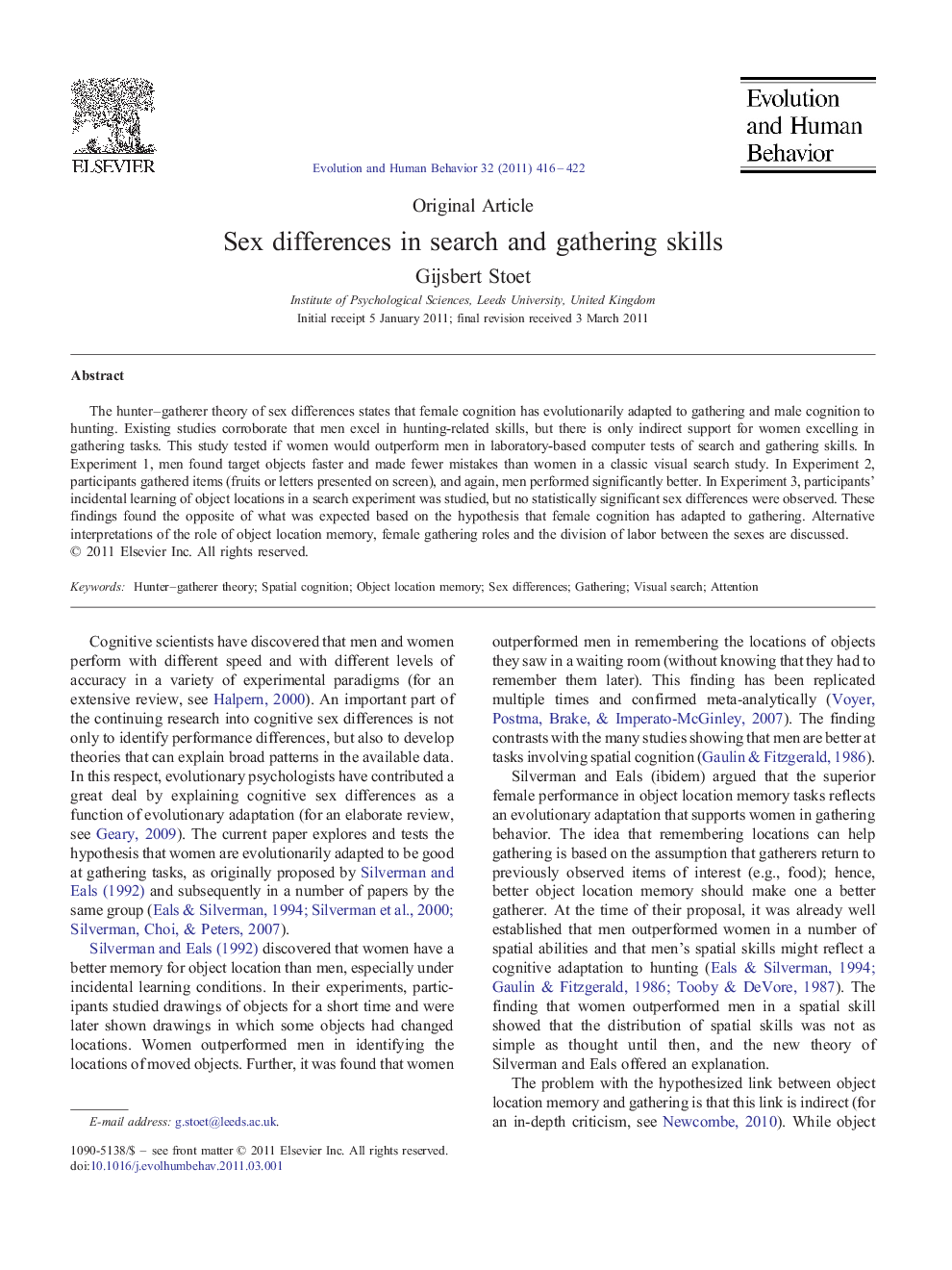| Article ID | Journal | Published Year | Pages | File Type |
|---|---|---|---|---|
| 943267 | Evolution and Human Behavior | 2011 | 7 Pages |
The hunter–gatherer theory of sex differences states that female cognition has evolutionarily adapted to gathering and male cognition to hunting. Existing studies corroborate that men excel in hunting-related skills, but there is only indirect support for women excelling in gathering tasks. This study tested if women would outperform men in laboratory-based computer tests of search and gathering skills. In Experiment 1, men found target objects faster and made fewer mistakes than women in a classic visual search study. In Experiment 2, participants gathered items (fruits or letters presented on screen), and again, men performed significantly better. In Experiment 3, participants' incidental learning of object locations in a search experiment was studied, but no statistically significant sex differences were observed. These findings found the opposite of what was expected based on the hypothesis that female cognition has adapted to gathering. Alternative interpretations of the role of object location memory, female gathering roles and the division of labor between the sexes are discussed.
